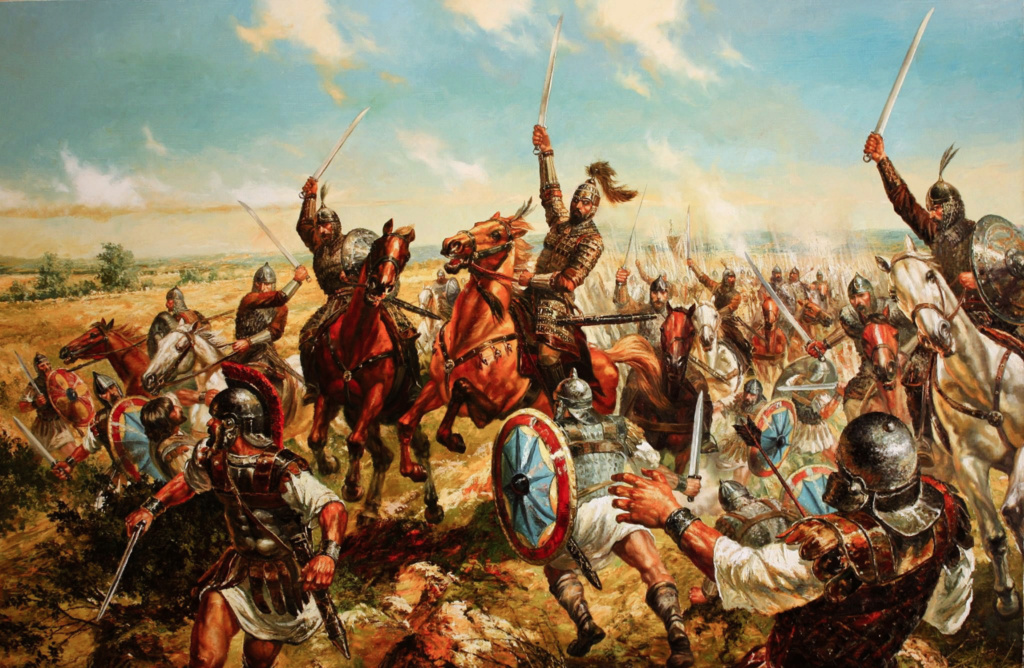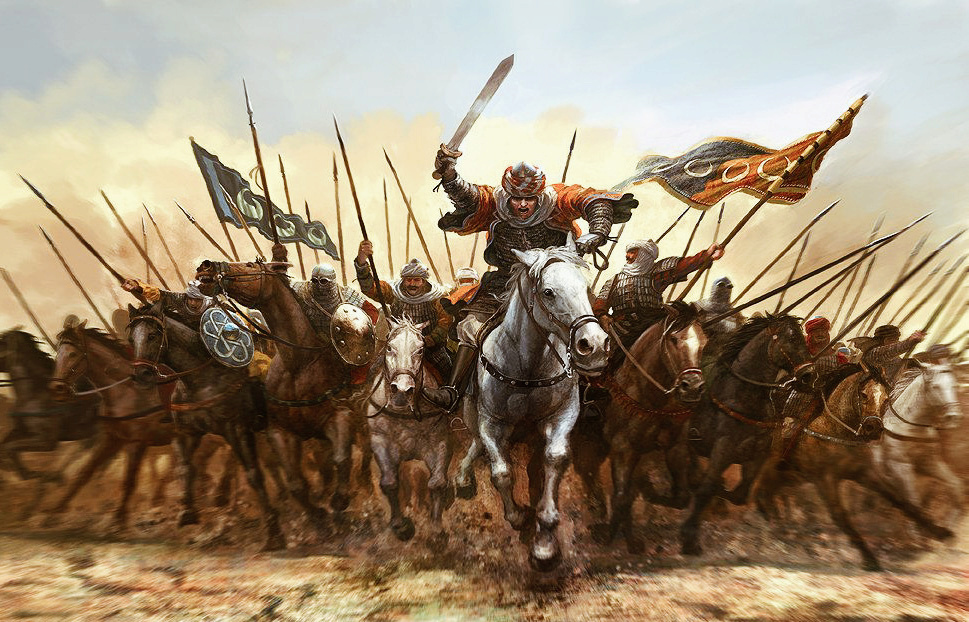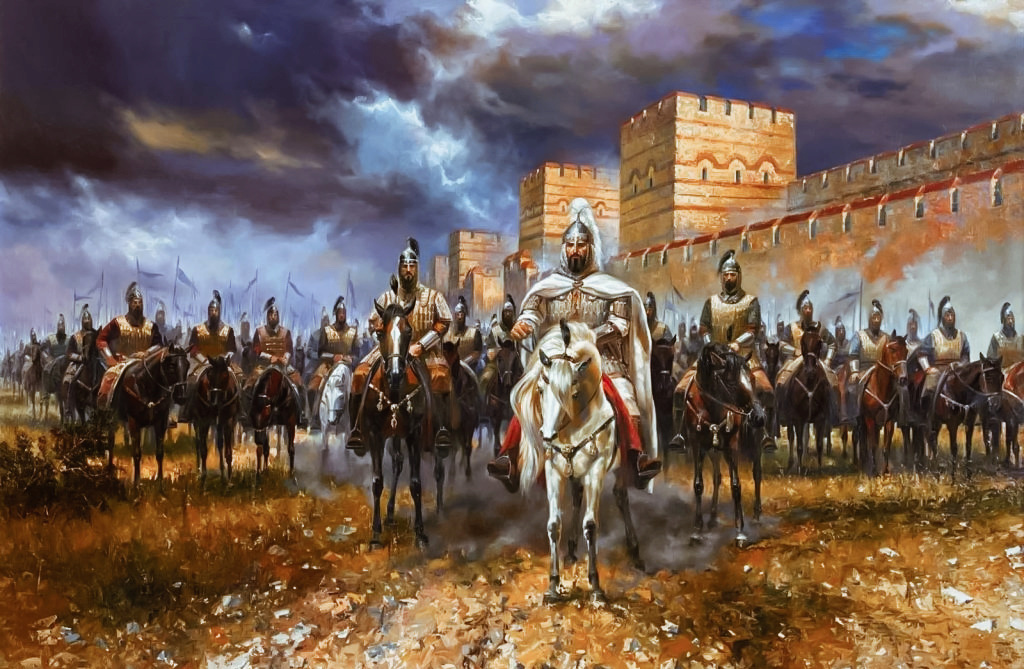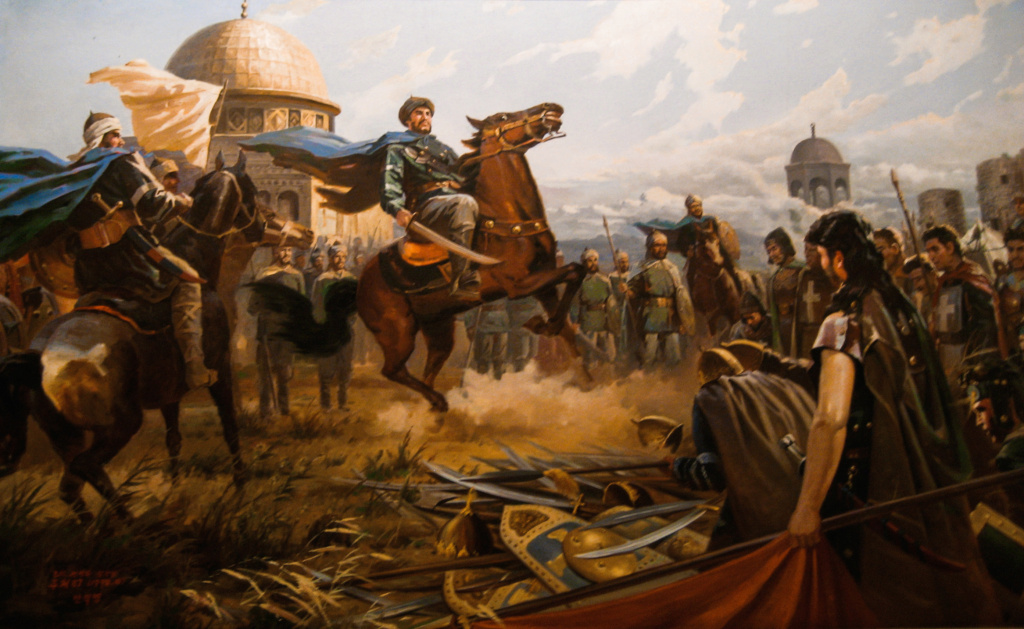The Arab “invasions” in the narratives of the vanquished: “The Invasion of Egypt”

On the eve of the “Arab invasion,” Byzantine Egypt was under the rule of Cyrus (Al-Muqawqis or Sirius, according to the Arabic name), who was appointed by Heraclius (Hercules) in 631 AD to the positions of ruler of Egypt and the Melkite-Chalcedonian Patriarch of Alexandria.
Expansion towards Egypt was on the table before the Arab leaders before the "conquest" of the Levant was completed... It was only a matter of time.
Despite what Egypt represented to the Byzantine Empire, as it was alone, as a state, pumping more than thirty percent of the total tax revenue, this did not intercede in defending it... Whoever is unable to recover Syria and Palestine, inevitably cannot defend the rest of his lands!
The fact is that the Byzantine forces there were insufficient in front of an enemy motivated religiously and possessing the initiative, under the leadership of the “shrewd Arabs” Amr ibn al-Aas, who was succeeded by Omar ibn al-Khattab.
On the eve of the “Arab invasion,” Byzantine Egypt was under the rule of Cyrus (Al-Muqawqis or Sirius, according to the Arabic name), who was appointed by Heraclius (Hercules) in 631 AD to the positions of ruler of Egypt and the Melkite-Chalcedonian Patriarch of Alexandria.
Cyrus' arrival in Egypt, in fact, marked the beginning of a massive campaign of persecution against the Copts for their rejection of the decisions of the Chalcedonian Council, which prompted the Coptic patriarch, Anba Benjamin, to flee and hide from sight.
And if the historian Michael the Syrian (11th century AD) says that Benjamin turned to the Tayyun (Arabs) and promised them to hand over Alexandria if they worked to expel Cyrus and hand him over the churches, then this narration seems similar to the Arab narration of the events of the “invasion”, in terms of the presence of a main Coptic figure who played a role Important in handing over Egypt to the Arabs.

However, this narrative strongly contradicts the semi-official history of the Coptic Church, which Severus of Ashmunein wrote, titled “The History of the Patriarchs,” and depicted the “Arab conquest” as an event independent of the will of the Egyptians.
This manuscript says that Heraclius saw a dream in which he was overcome by a circumcised slave girl. Heraclius thought they were the Jews, so he ordered them to be baptized. Then, after a few days, a man from the Arabs revolted in Mecca named Muhammad, who returned the worshipers of idols to the knowledge of God and to say... that Muhammad is His Messenger.
Severus goes on in his narration of the events, saying: “When ten years of the kingdom of Heraclius and the Muqawqis ended, and he was seeking Benjamin the patriarch while he was on the run... the king of the Muslims (Umar ibn al-Khattab) carried out a detachment with a prince from his companions called Amr ibn al-Aas... so the Islamic military descended to Egypt with great force... and it was Prince Amr demolished the fort, burned the boats with fire, humiliated the Romans, and owned some countries...".
Severus also talks about the safety that the Muslims granted to the vanquished, on the condition that the tax was paid. Then he says that Umar ibn al-Aas ruled Egypt for three years before he owned Alexandria, demolishing its walls and burning many of its stores.
What concerns us here is that Severus says that a man named Santonius the Dukes, who was a Byzantine employee who cooperated with Amr, was the one who informed the latter of the patriarch's escape, so Amr wrote to the patriarch's workers in Egypt telling them that he could bring a safe and secure person and manage the state of his allegiance and the politics of his sect.
At that time, the manuscript narrates, Benjamin returned to Alexandria with great joy, after an absence of 13 years, ten years during the reign of Heraclius and three during the era of the Muslims.
This manuscript certainly neglects the course of the battles because of its interest in documenting the events that concern the Coptic Church, but what interests us in it is its different version of the “invasion of Egypt.”

In fact, the Annals of John of Nicos (now the village of Abshai in Menoufia, Egypt) may be the most frank in their denunciation of all that the “Arab conquest” brought to Egypt and in their recounting of the calamities that the Arabs inflicted on the Copts.
These annals talk about the Ismailis (Arabs) and “merciless” slaughter of the Byzantine commander Theodosius and his soldiers and all the people after their entry into Egypt, and even the more they penetrated, the massacres escalated.
It also talks about Amr ibn al-Aas stripping the Roman leaders of their property after their arrest, doubling taxes on the peasants, and ordering them to provide fodder for his horses.
John adds that Omar committed countless acts of violence, until panic spread among the inhabitants of Egypt who fled towards Alexandria, leaving their money and herds, while he seized all their possessions with the help of those who followed his faith from among the Christians.
The Muslims followed this on their way to Alexandria, the Annals add. Then, when they perceived the weakness of the Romans and the hostility of the people towards Heraclius, because of his appointment of the Mukavkas, they became bolder and stronger in war.
As for after Amr entered Alexandria, his soldiers did not commit acts of plunder against the churches, but he increased the taxes tremendously, “until the Egyptians sold their children to pay the tax.”
There is no reason here to say that John's story of "the conquest of Egypt" is inconsistent with the Arabic narrative... What concerns us about it; Depicting the Coptic mood following the “Arab invasion”, which does not seem to agree with the atmosphere drawn by Arab sources about the Egyptians welcoming the Arab “invaders”.

The Arab Invasion Western scholars have eloquently talked about the burning of the Library of Alexandria as evidence of barbarism.
This story is narrated by Abu al-Faraj Gregory Ibn al-Abri, in which he says that a man named John Philipponos asked for the books of wisdom that are in the treasury of royalty, and Ibn al-Aas said to him: “I cannot order them except after the permission of the Commander of the Faithful.” Then he wrote to Omar, and he replied this: “As for the books that I mentioned, if there is something in it that agrees with the Book of God, then in the Book of God there is no need for it.
And so did he, the story tells.
After turning the story around, the English orientalist Alfred Butler draws several conclusions that deny its validity:
The story first appeared more than 500 years after the event you are talking about. Analyzing the details of the story leads to showing its absurdity. The main character in it (John Philipponos) had died long before the Arab invasion of Egypt. Two of the largest libraries to which the story could be referring had vanished hundreds of years before the "Arab conquest". The literature of the fifth, sixth and seventh centuries does not contain any mention of this library
Then, if such a library existed when the Muqawqis surrendered Alexandria, it is certain that the books would have been transferred, according to an article in the surrender treaty, allowing the transfer of all valuable materials during the eleven months of truce separating the signing of the treaty and the actual entry of the Arabs into the city.
The bottom line, according to Butler, is that the story is nothing more than fictional. A refutation not different from that made by the English historian Edward Gibbon of the story, exonerating Amr ibn al-Aas of that charge.
But these are just interpretations to divert the charge away from the Arab invaders, as the whole of Alexandria was under strict control, domination, and surveillance, and it is difficult to move books, gold, or various treasures. Or hide them, especially since they number in the thousands, and the burning process was carried out by Omar Ibn al-Aas and his army by order of Omar Ibn al-Khattab, and the Persian library was also burned. And sabotage, as long as the goal is to control the country, seize property, impose levies and taxes, and there are no colonialists among the angels and others among the devils, they are both one, so do not blur the facts in the name of religion in order to convince the ignorant and the fools, and how many of them need an electric shock to awaken them from their negligence
Source: websites

